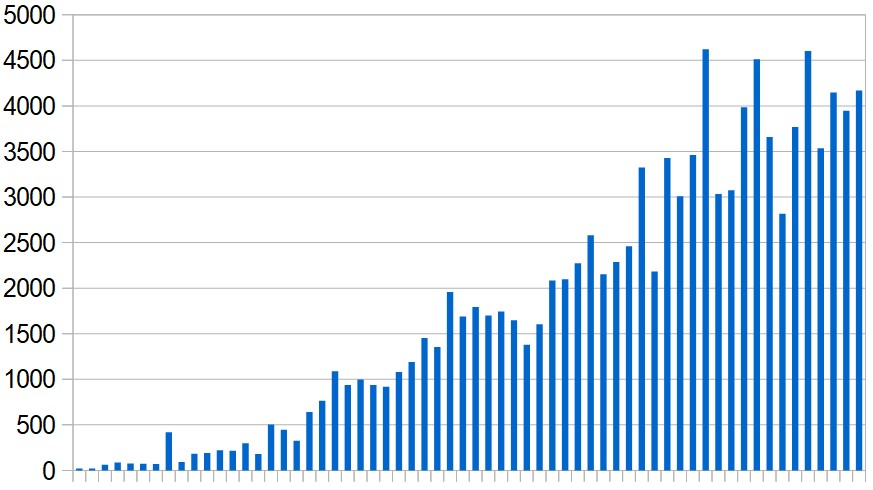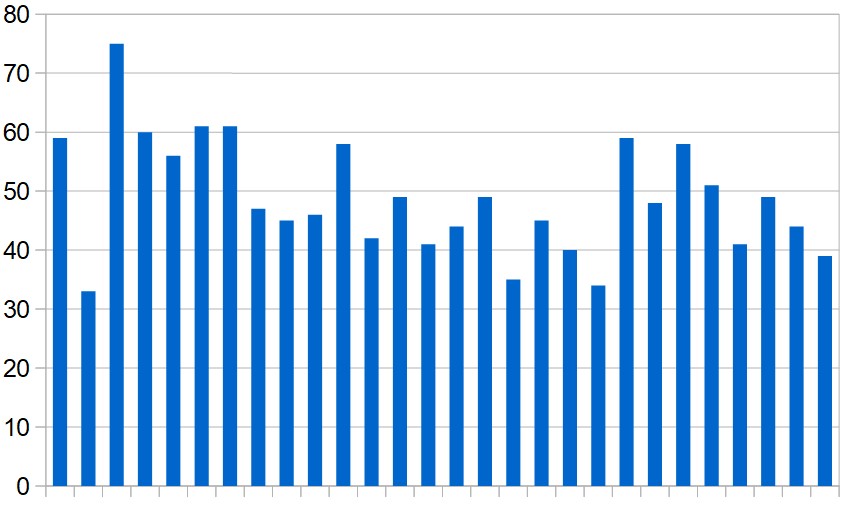Saudi firms that run into financial trouble because of the coronavirus epidemic will be allowed to cut workers' wages by 40% – and then sack them after six months – under a decision approved by the kingdom's ministry of human resources.
In legal terms, it means companies can break existing employment contracts on grounds of force majeure so long as they follow the ministry's rules and can demonstrate financial hardship.
CLICK HERE to jump to statistical updates
Migrant workers are likely to be hardest hit by the move, since employees who have Saudi citizenship can claim compensation for loss of wages from the government.
Companies that cut wages will still be allowed to claim government benefits, including help with the portion of wages that they do pay, according to a report in the Saudi newspaper Ash-Sharq al-Awsat.
Another Saudi paper, Arab News, quotes the ministry as saying pay cuts will only be implemented with employees' consent – though it doesn't say what will happen if employees refuse and their employers can't pay.
Infections spread in war-torn Yemen
There are growing signs that the Covid-19 outbreak in Yemen may be impossible to contain following confirmation of two new cases in the south-eastern province of Hadramaut.
This raises the number of known cases in the war-torn country to 12, including two deaths.
No details have been given about the latest cases, except that they are being treated at an isolation facility in Mukalla, a port city on the southern coast which is Hadramaut's provincial capital. It's unclear whether the two people were infected in Mukalla or transferred there from somewhere else for treatment.
So far, all confirmed infections have occurred in parts of the country which are controlled (nominally, at least) by the internationally-recognised government of President Hadi which was ousted from the capital, Sana'a, by Houthi rebels.
The Houthis, who control much of the north, have not reported any cases – but that doesn't mean there are none. Several doctors in Sana'a have described patients with symptoms resembling Covid-19 but have been unable to get confirmation.
Middle East updates
New cases
A further 5,393 Covid-19 infections have been reported in the Middle East and North Africa since yesterday's update. Of those, 1,645 were in Saudi Arabia and 1,223 in Iran.
The list below shows cumulative totals (excluding Iran) since the outbreak began, with day-on-day increases in brackets.
Algeria 4,648 (+174)
Bahrain 3,533 (+150)
Egypt 6,813 (+348)
Iraq 2,346 (+50)
Israel 16,268 (+31)
Jordan 465 (+4)
Kuwait 5,278 (+295)
Lebanon 740 (+3)
Libya 63 (-)
Morocco 5,053 (+150)
Oman 2,735 (+98)
Palestine 532 (+10)
Qatar 16,191 (+640)
Saudi Arabia 28,656 (+1,645)
Sudan 678 (-)
Syria 44 (-)
Tunisia 1,018 (+5)
UAE 14,730 (+567)
Yemen 12 (2)
TOTAL: 109,791 (+4,170)

Death toll
A further 113 coronavirus-related deaths were reported in the region yesterday – 74 of them in Iran and 11 in the UAE.
The list below shows cumulative totals of reported deaths in the region outside Iran, with day-on-day increases in brackets.
Algeria 465 (+2)
Bahrain 8 (-)
Egypt 436 (+7)
Iraq 98 (+1)
Israel 237 (+3)
Jordan 9 (-)
Kuwait 40 (+2)
Lebanon 25 (-)
Libya 3 (-)
Morocco 179 (+5)
Oman 12 (-)
Palestine 4 (-)
Qatar 12 (-)
Saudi Arabia 191 (+7)
Sudan 41 (-)
Syria 3 (-)
Tunisia 43 (+1)
UAE 137 (+11)
Yemen 2 (-)
TOTAL: 1,943 (+39)

CLICK HERE for previous updates
For anyone interested: A spreadsheet documenting the coronavirus cases and deaths reported in the region each day can be viewed here.

 RSS Feed
RSS Feed
